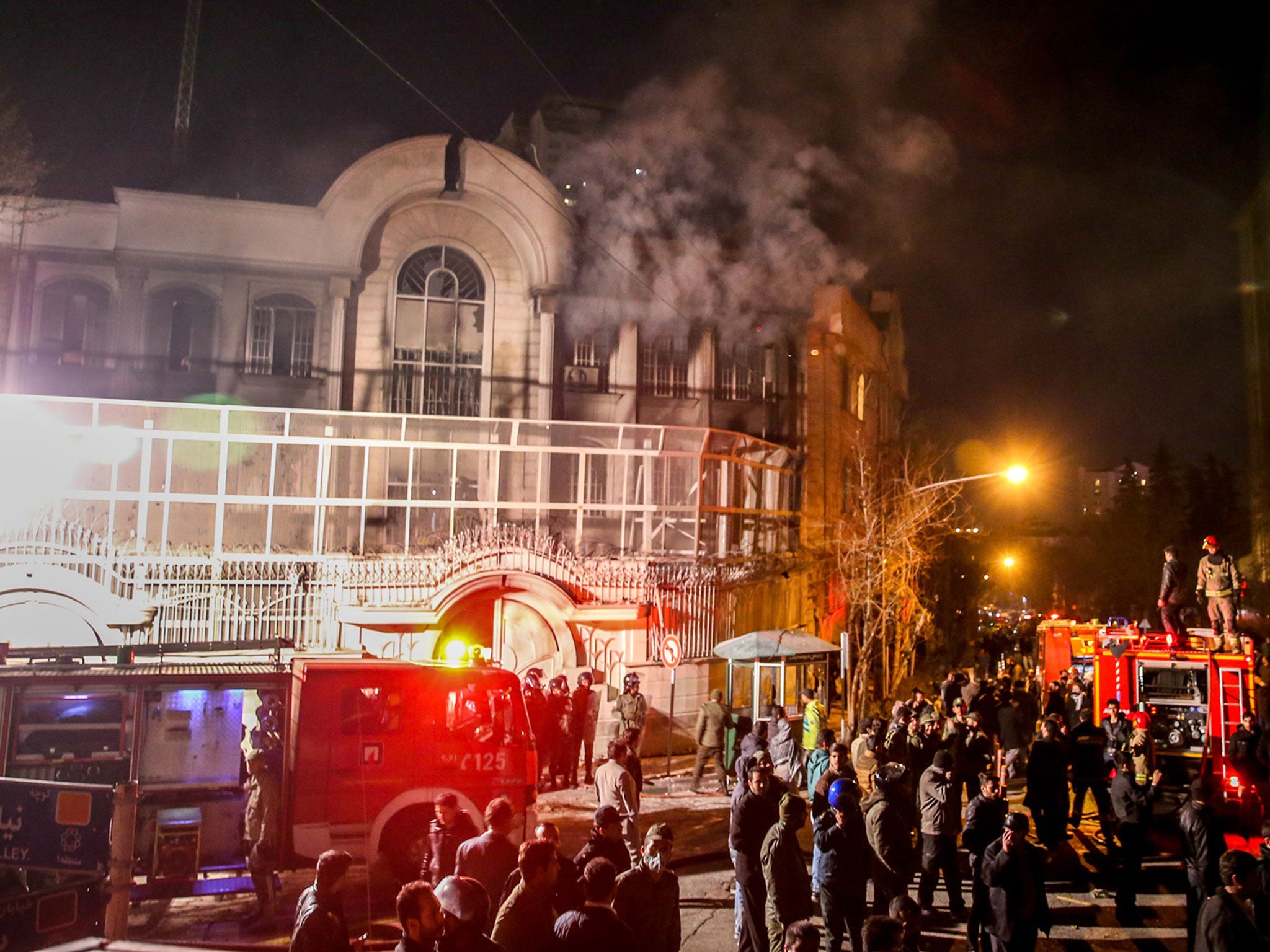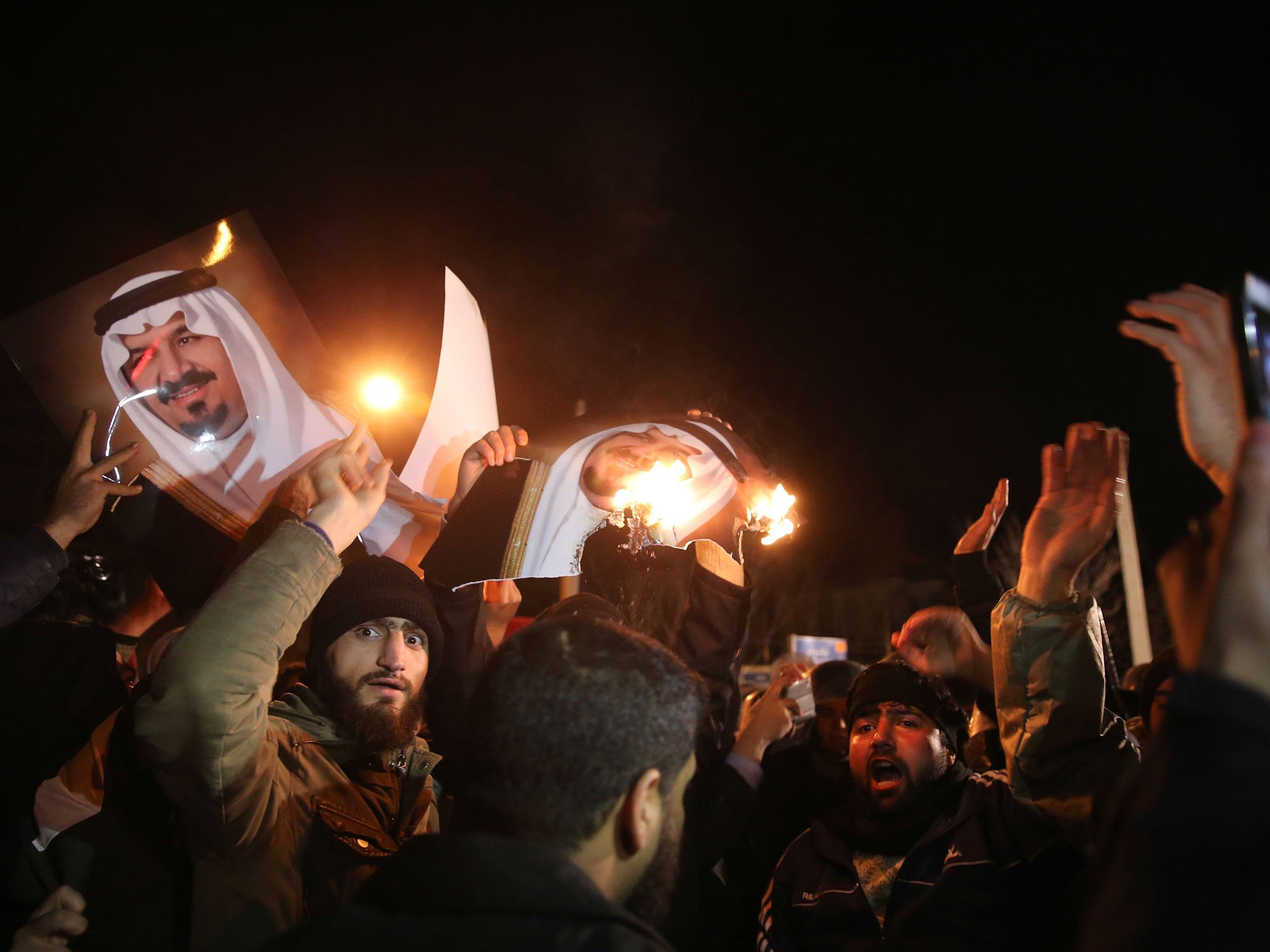UN condemns attack on Saudi embassy in Iran but fails to mention executions
The UN Secretary-General has condemned the killing of Sheikh al-Nimr but the Security Council statement did not mention his death

Your support helps us to tell the story
From reproductive rights to climate change to Big Tech, The Independent is on the ground when the story is developing. Whether it's investigating the financials of Elon Musk's pro-Trump PAC or producing our latest documentary, 'The A Word', which shines a light on the American women fighting for reproductive rights, we know how important it is to parse out the facts from the messaging.
At such a critical moment in US history, we need reporters on the ground. Your donation allows us to keep sending journalists to speak to both sides of the story.
The Independent is trusted by Americans across the entire political spectrum. And unlike many other quality news outlets, we choose not to lock Americans out of our reporting and analysis with paywalls. We believe quality journalism should be available to everyone, paid for by those who can afford it.
Your support makes all the difference.The United Nations Security Council has condemned attacks on Saudi Arabian diplomatic missions in Iran that saw protesters ransack offices and set them on fire.
A statement from the 15-member body, including the UK, US and Russia, made no mention of the Saudi executions that sparked the riots amid ever worsening tensions between the two countries.
Among the 47 people beheaded and shot was Sheikh Nimr al-Nimr, a prominent Shia cleric and Arab Spring activist whose supporters say was wrongly convicted of “terror” offences and seeking “foreign meddling” as Saudi authorities continue to quash dissent.
Video: Iranians protest against execution of Shia cleric
His death on Saturday sparked demonstrations around the world, with a group storming the Saudi embassy in Tehran the following day, smashing windows and furniture before setting it on fire, while angry protesters tore down a flag at the Saudi consulate in the city of Mashhad.
The Security Council statement said it condemned the attacks in the “strongest terms”, saying they had violated diplomatic and consular premises, while causing serious damage.
Reminding governments of the “fundamental inviolability” of such premises and responsibility of host countries to protect them, the council urged “all appropriate steps” to be taken to prevent further disturbances.
“In this context, and expressing their deep concern at such attacks, the members of the Security Council called on the Iranian authorities to protect diplomatic and consular property and personnel, and to respect fully their international obligations in this regard,” a spokesperson said.

“The members of the Security Council called on all parties to maintain dialogue and take steps to reduce tensions in the region.”
Saudi Arabia has ordered Iranian diplomats to leave the country after severing diplomatic ties, a step repeated by several allies, while Iran defended its response to the embassy attack and said 50 people had been arrested.
High-level politicians in both countries have been accusing each other of incitement as the proxy war continues between Iran and Saudi Arabia and Yemen and Syria, where the countries are backing opposing sides.
There is growing concern that the worsening dispute could derail efforts to end the Syrian civil war, with both nations playing key roles in talks scheduled for 25 January in Geneva.
Josh Earnest, the White House spokesperson, urged both to attend and said it was “so clearly in the interests of both countries to advance a political solution to the situation.“
Saudi Arabia's ambassador to the UN, Abdallah al-Moualimi, said representatives would attend but Iran has not confirmed whether it will send representatives.
Ban Ki-moon, the UN Secretary General, has spoken to the Saudi and Iranian foreign ministers as efforts continue to de-escalate the situation.
A spokesperson said he reiterated his strong opposition to capital punishment in a call with the Saudi foreign minister, Abel bin Ahmed Al-Jubeir, and “disappointment” at the execution of Sheikh al-Nimr.
He called the attack on the Saudi embassy in Tehran “deplorable” but also said the decision to cut diplomatic relations with Iran was “deeply worrying” and urged a ceasefire in Yemen.
Mr Ban told Iran to take necessary measures to protect diplomatic facilities and urged both ministers to avoid exacerbating the situation in the interest of their nations, the region and beyond.
Additional reporting by agencies
Join our commenting forum
Join thought-provoking conversations, follow other Independent readers and see their replies
Comments